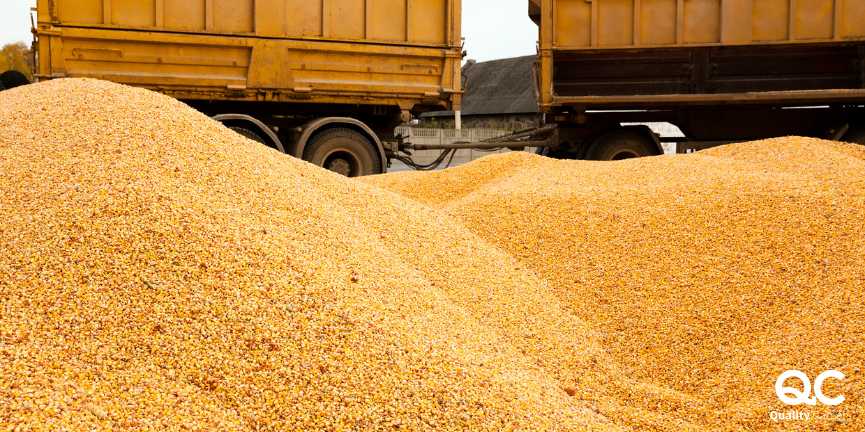Dry bulk shipping is a critical component of the global supply chain, transporting various unpackaged bulk goods essential for multiple industries. Dry bulk drivers, the professionals behind the wheel, ensure these materials reach their destinations safely and efficiently. But what exactly do these drivers haul? The products transported by dry bulk carriers are extensive and varied.
In this blog, we will explore the common products dry bulk drivers haul, highlighting their role in maintaining the smooth operation of industries worldwide.
Understanding Dry Bulk Shipping
Dry bulk shipping refers to transporting unpackaged bulk cargo in large quantities. These goods are secured in specialized containers or trailers to keep the materials safe and secure during transit. Dry bulk drivers operate these vehicles, ensuring timely and safe delivery to their destinations. The role of a dry bulk driver is critical in maintaining the supply chain for numerous industries.
Common Products Hauled by Dry Bulk Drivers
Cement
Cement is a fundamental material in the construction industry. Dry bulk carriers transport cement from manufacturing plants to construction sites, ready-mix concrete facilities, and other end-users. The delicate, powdery nature of cement requires specialized trailers to prevent spillage and contamination.
Grains and Agricultural Products

Dry bulk shipping is essential for transporting wheat, corn, barley, and soybeans, which are crucial for the food and agriculture industries. Dry bulk drivers deliver these grains from farms to processing plants, storage facilities, and markets.
Sand and Aggregates
Sand, gravel, and other aggregates are essential in construction and landscaping. Dry bulk carriers transport these materials to construction sites, concrete plants, and other locations needed for building infrastructure, roads, and other projects.
Plastics and Resins
The plastics industry relies on dry bulk shipping to transport raw materials such as plastic pellets and resins. These materials are helpful in the manufacturing of different plastic products. Dry bulk drivers ensure these materials are delivered to production facilities.
Food Ingredients
Dry bulk carriers also transport food ingredients like flour, sugar, and starch. These materials are essential for food processing and production. Maintaining the purity and quality of these ingredients during transit is crucial, making the role of dry bulk drivers extremely important.
Animal Feed
The agriculture industry relies on dry bulk shipping to transport animal feed, including grains, protein meals, and other nutritional products used to feed livestock. Dry bulk drivers ensure these feeds are delivered to farms and feed mills.
Scrap Metal

Scrap metal consists of recyclable metal materials used in manufacturing and construction. It is collected from various sources and transported to recycling facilities and metal processing plants. These products are aluminum scrap, steel scrap, and copper scrap.
Fertilizer
Fertilizers provide essential nutrients to enhance soil fertility and crop yield. They are crucial for agriculture and are transported to farms and agricultural distributors. These products are Urea, ammonium nitrate, and phosphate fertilizers.
Coal

Coal is an essential energy source for electricity generation and steel production. There are two main types of coal: coking coal for steel manufacturing and thermal coal for power generation. Some products are bituminous coal (thermal coal) and anthracite (coking coal).
Iron Ore
Iron ore, a fundamental raw material for steel production and extracted from mines and transported to steel manufacturing plants for processing into steel. These products are hematite and magnetite.
The Role of Dry Bulk Carriers
Dry bulk carriers are specialized vehicles that transport large quantities of dry, unpackaged goods. They come in various types, including hopper trailers, pneumatic trailers, and dump trailers, each suited for different kinds of cargo. Dry bulk drivers must skillfully operate these vehicles, ensuring proper loading and unloading to maintain the integrity of the cargo.
Conclusion
Dry bulk drivers are essential to the logistics and supply chain of many industries. They haul an extensive range of goods, from construction materials like cement and aggregates to agricultural products. By transporting these essential materials, dry bulk drivers ensure that industries can function smoothly and efficiently.
Quality Carriers offer dry bulk driving jobs if you’re considering a career in dry bulk shipping. It’s a role that demands attention to detail, safety, and reliability, making it both challenging and rewarding. You can become a dry bulk driver in the transportation industry with the proper training and dedication.
FAQs
Dry bulk drivers ensure compliance with environmental regulations by using proper containment measures, adhering to handling procedures, and preventing spills and contamination. Participating in training and adhering to industry standards are essential for maintaining environmental compliance.
They face challenges such as managing heavy loads, preventing contamination, adhering to safety regulations, and navigating various terrains and weather conditions. Effective planning and the use of specialized equipment help mitigate these challenges.
Dry bulk drivers maintain the quality of transported goods by using appropriate containment measures, controlling moisture levels, preventing cross-contamination, and following proper loading and unloading procedures.




